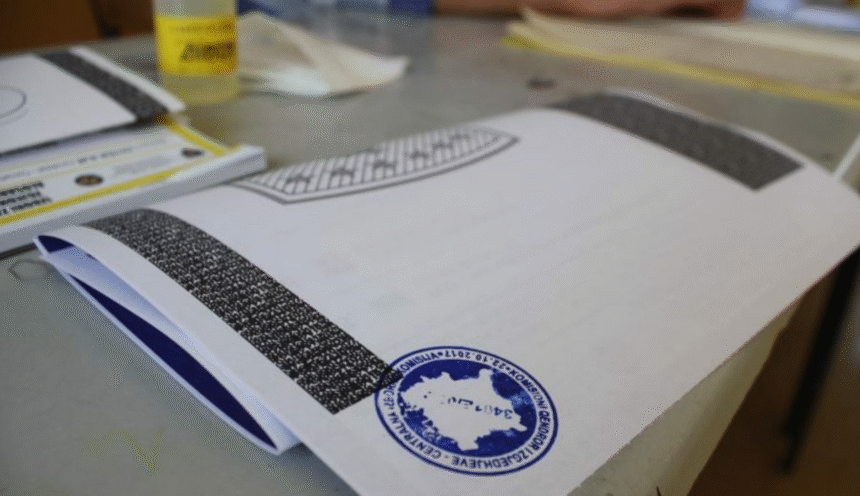As the October 12 local elections approach, the current political situation in the country—particularly the institutional deadlock that has lasted for more than six months and the failure to constitute the Assembly—has raised questions about election preparations and the potential impact of this crisis on voter participation.
Local Election Preparations Without Delays
The Central Election Commission (CEC) is carrying out preparations for the October 12 local elections without delays.
CEC spokesperson Valmir Elezi told klankosova.tv that most activities related to voters and political entities have already been completed.
“The printing of ballots is nearing completion, while the CEC is awaiting applications for observer accreditation and the registration of voters with special needs who will cast their ballots through mobile teams,” Elezi explained.
Impact of the Unconstituted Assembly on Voter Turnout in the October 12 Local Elections
However, the situation regarding the unconstituted Assembly of Kosovo—an institutional blockade lasting more than six months—may affect voter participation.
Political analyst Arbnor Sadiku told klankosova.tv that he expects lower turnout, emphasizing that in addition to discouraging participation, the deadlock could also motivate some citizens to express dissatisfaction through voting.
“I believe the number of voters will be lower this time than in previous elections. The political deadlock may indeed reduce participation, but it could also motivate some citizens to express dissatisfaction through their vote. Many disillusioned voters may choose to boycott, while others may mobilize. Local elections are often seen as an opportunity to show dissatisfaction with central politics, combining criticism with expectations for municipal governance,” Sadiku said.
He added that under objective circumstances, those in power usually bear the cost. However, given Kosovo’s transitional context, outcomes could go “either way.”
Meanwhile, Eugen Cakolli from the Kosovo Democratic Institute (KDI) argued that the situation surrounding the Assembly’s failure to convene and the government’s failure to form cannot be seen as separate from the context of the local elections.
According to him, past experience shows that despite political crises at the central level, voter turnout in local elections has remained relatively stable—mainly due to citizens’ closeness to local government and the concrete issues that affect daily life.
Cakolli emphasized that while there is no formal institutional overlap between the central political crisis and local elections, the broader political climate in a democracy inevitably affects the electoral process.
“It is true that formally there is no direct overlap of competencies, but it is equally true that the political climate in a democracy is holistic and encompasses the entire system. Citizens usually do not separate perceptions of central and local elections; rather, they experience them through their overall perception of how institutions function—or fail to function,” Cakolli noted.
The KDI further stressed that local elections are an integral part of the political ecosystem. As such, uncertainty at the central level inevitably has an impact—if not on voter turnout, then on how citizens perceive political processes.
“When institutional deadlock drags on and becomes normalized, it risks normalizing distrust as well. In such a climate, voters may no longer see elections as an instrument of change, but rather as a formality producing the same cycle of dysfunctionality,” KDI warned.
According to the institute, this perception may not drastically reduce turnout, but it clearly affects the political mood, the tone of the campaigns, and the ability of parties to mobilize citizens in a meaningful way.







